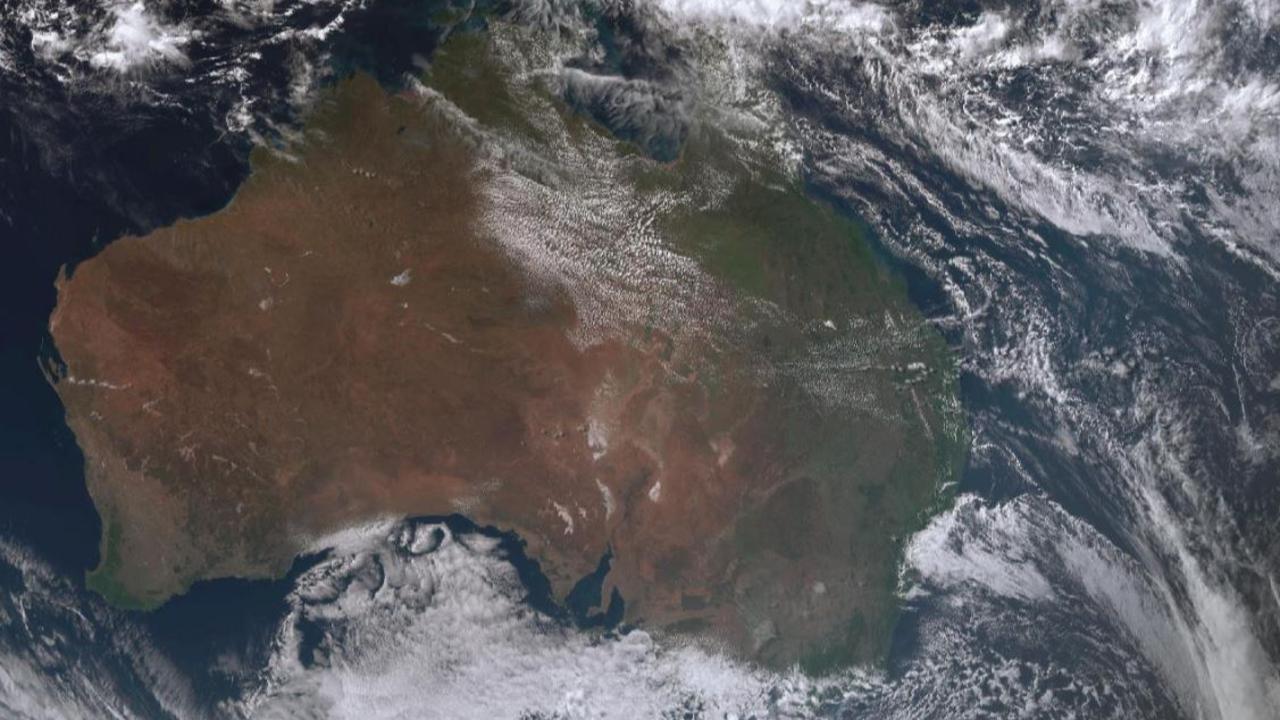World reacts to shock development in Antarctica: ‘Oh my god!’
It’s been shrinking for decades but latest scientific findings show a shock development in Antarctica - and it’s sparked fierce debate online.
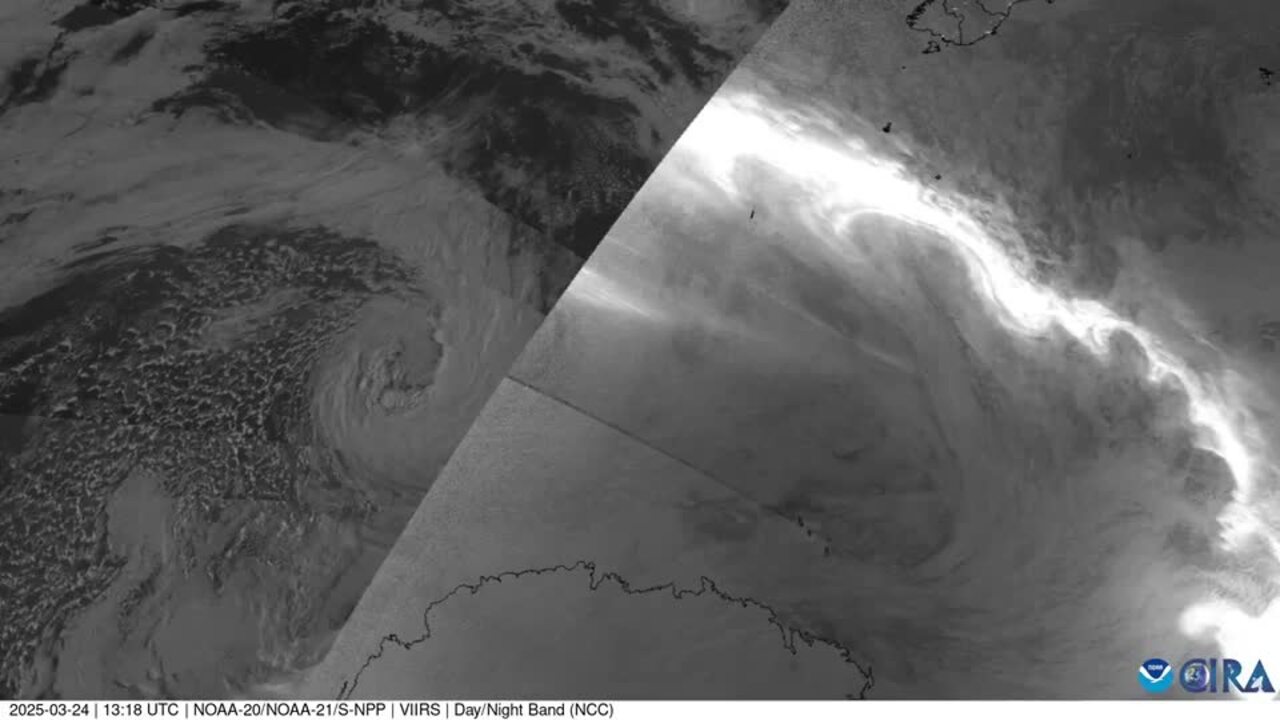
Environment
Don't miss out on the headlines from Environment. Followed categories will be added to My News.
Social media has erupted into debate after stunning findings revealed that the Antarctic Ice Sheet had gone through record-breaking growth after decades of loss.
In what seems like music to the ears of climate sceptics who have long derided doom-and-gloom predictions, a study published in Science China Earth Sciencesfound that between 2021 and 2023 the Antarctic Ice Sheet (AIS) grew by an unprecedented amount.
The report says that between 2021 and 2023, the ice sheet grew by almost 108 gigatons (or 108 billion metric tons) of ice per year.
The reason for the rise is reportedly due to an unusual increase in precipitation, particularly in East Antarctica, leading to an accumulation of snow and ice.

To put it in perspective, between 2002 and 2010, the AIS lost mass at a rate of almost 74 gigatons a year, resulting in a 0.2mm per year global sea-level rise. Between 2011 and 2020, that rose to more than 142 gigatons a year, a sea-level rise of 0.39mm per year.
But the recent increase in ice has seen a 0.30mm offset between 2021-2023.
In the Wilkes Land–Queen Mary Land region of Antarctica, four major glaciers — Totten, Moscow University, Denman and Vincennes Bay — had been losing the most mass.
Cosmos reported that Vincennes Bay and Denham had suffered “intense” losses, suffering about 72.5 per cent surface melt and 27.5 per cent ice loss according Dr Wei Wang of Shanghai’s Tonji University.
But between 2021 and 2023, this area had received the most mass gain.
This is important considering those glaciers are among the most vulnerable on the continent and that Antarctica holds around half of the freshwater on Earth.
However, for those believing it may be the end of global warming, scientist warn that this may not signal a long-term trend.
Internet runs wild with finding: ‘Oh my god’
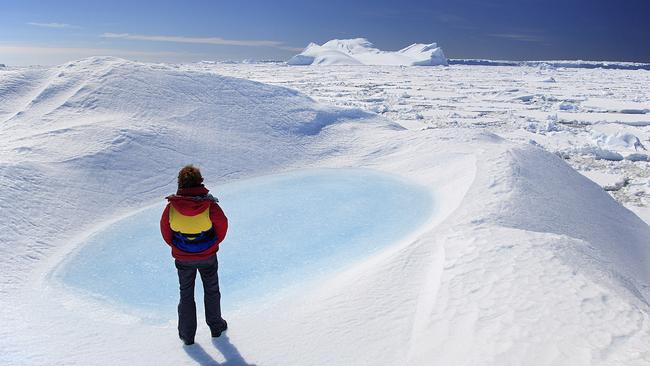
Despite there being a bit more to the story, the promising headline was enough for the internet to run with the findings.
X user Collin Rugg, who has 1.8m followers on the platform, shared the news on his account, writing that it was “crazy”.
He also included a line tempering the findings, saying: “Scientists say much of the gains are linked to precipitation patterns, which could be temporary.”
But his comments quickly went nuts.
Self-described “populist Republican” and founder of The Loud Majority podcast Kevin Smith replied: “So Al Gore was wrong again??? Is climate change over?”
Canadian-American venture capitalist Chamath Palihapitiya commented: “Oh my god! All the protests and virtue signalling worked!!!”
January 6 rioter Derrick Evans added: “Poor Greta will have to come up with a new scam.”
Founder and Executive Director of Power The Future Daniel Turner claimed the story was proof you should “never believe a climate alarmist”.
And this is just the tip of the metaphorical iceberg.
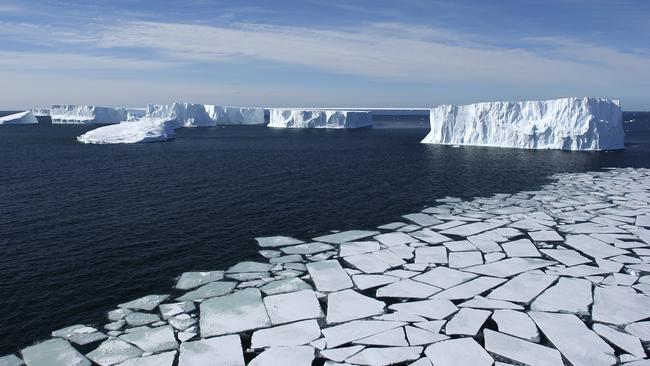
There were plenty more who hit out at the news, but others put it in context.
Crypto journalist Laura Shin suggested: “Wouldn’t it be because of Covid? People were flying and driving less, so emissions were down?”
Others pointed out that it was a “temporary” and “anomalous” precipitation accumulation and that it had been trending down for over 20 years.
Professor at the University of Ottawa Ryan Katz-Rosene, PhD also tried to put it in context, showing a graph of how the ice sheet had fared since the 1980s.
Yes, there was a record -breaking mass gain for the Antarctic ice sheet from 2021 to 2023, thanks to increased precipitation in East Antarctica. This is what it looks like in context👇
— Ryan Katz-Rosene, PhD (@ryankatzrosene) May 5, 2025
(h/t @Marcusgibson) pic.twitter.com/KCw3RNar49
Two-thirds of the world’s freshwater is held between Antarctica and Greenland, with NASA finding that Greenland is declining at twice the rate of Antarctica — and there was no bounce back Greenland, which has been losing ice at a reasonably steady rate since 2002.
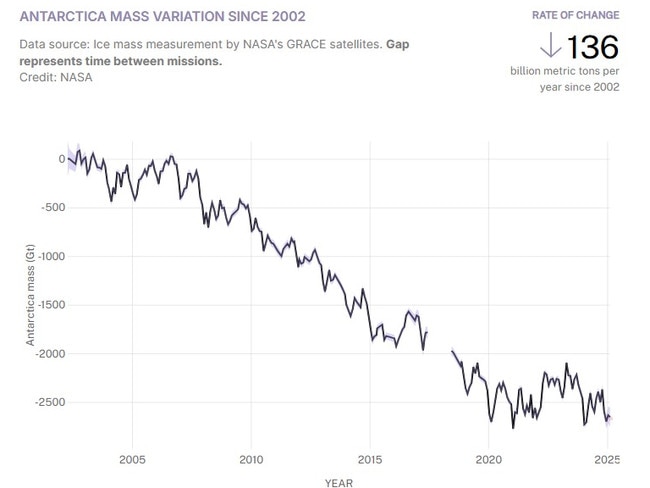

This data is from NASA’s GRACE (Gravity Recovery and Climate Experiment) mission — which ended in June 2017 — and GRACE Follow-On mission — which began in June 2018.
Both missions have flown spacecraft around the Earth to study changes to the planet’s waters, ice sheets and solid Earth.
On average between 2002 and now, the Antarctic has lost an average of 136 gigatons per year, while Greenland is losing approximately 267 gigatons per year.
Thanks to the growth between 2021-2023, current levels in 2025 are not as low as they were in January 2021, but also not by much.
— with New York Post
Originally published as World reacts to shock development in Antarctica: ‘Oh my god!’





